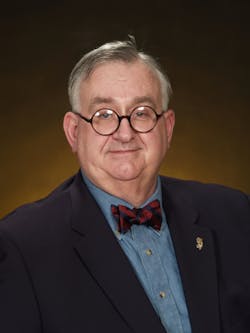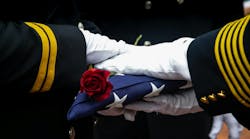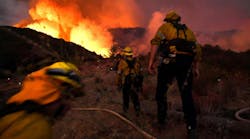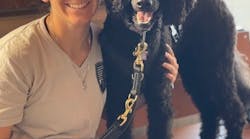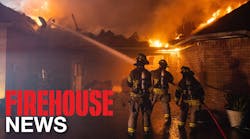Many have been the comments over the past few years about the problems which we all seem to be encountering with the younger people entering our fire departments. How many times have I heard someone exclaim that these new people are so different? How many times have you and I heard someone state that these ‘kids just do not know what we know?’
Let me say something really important at this point. No kidding. Of course they are different my friends. These folks are a different generation. They grew to adulthood at a different time than you and I did; under a wholly different set of circumstances. School is different now and how people respond to school, and society in general, is not what it was when we were young.
When my friends and I were growing up, we never got a trophy just for participating. Someone always kept score when we were playing games; there were winners and there were losers. My friends I can recall being a part of many winning teams. However, I can also remember getting my butt smacked many times when we lost. I learned very early on that life was a series of successes and failures. My life’s greatest successes have come about as a result of a spectacular failure which I experienced in my late teens.
Apparently lessons like this are no longer being taught in our schools. Sad to say. While this is not true for all, it is true for far too many.
How are we in the fire service to operate in a world where our newer, younger members have not been brought to adulthood in the same was as you and me? It is my suggestion that we must learn about the members of our younger generations. We must learn who they are and how they learn. Then my friends, it is up to us to teach them how to be productive members of our fire service in ways which are appropriate for them.
While pondering this problem recently, I was lucky enough to find a potential solution. Some days it is my good fortune to stumble across an idea from another part of my world, which can be easily transferred to our fire service world. So it was one morning recently when I spent some time reading the latest edition of my Scottish Rite Masonic magazine, The Northern Light. It was my pleasure to read an interesting and informative article on this very topic in the section of the magazine dealing with articles from the past.
It was in 1975 that a Brother Mason wrote, “(You must) teach … the enduring qualities of character which will preserve (our) nation”. The Brother then went on to write that, “… we are looking for servants … in the community and in the organization. If we are to produce servants, we must teach our young people to serve”
Brother Earl Dille then goes on to list a number of examples where both proper and improper behavior are taught by the parents to their children. “How does a young man get cynical about the ‘cops?’ His daddy taught him. How does a young man learn to respect the police? It’s because his daddy teaches him.” My friends, I believe that this is an example which you and I must work to make a part of our drive to create stronger fire departments. We must teach people what we expect them to do and be.
Is there someone in your fire department who has been the model for how to be a great member? I know many with whom I have served over the years. They were always there. Day or night; fair weather or foul, you could count on them to show up and do a great job. Sad to say, I often failed to meet their standards. I am a solid member, but not a great member. I say this in all honesty.
If we want people to learn the right way to do anything, it is up to us to teach them how. More than that, we need to live the example for them. This is something which has formed a part of my leadership courses for many years. This is something which I have tried to do over the years. I have had my share of both successes and failures. Here are a few of my examples:
- Always set the example.
- If you want people to be on time, get there early and then greet them when they arrive.
- If you want your folks to be properly uniformed, wear yours correctly.
- You must cultivate responsibility among your people.
- You must know their skill levels and then give them tasks to do which will fall within their ability to achieve.
- If they do not know, teach them.
- If they make mistakes, correct them.
- If you want your people to use tact in their relations with others, be sure to be tactful in your dealings with them.
- If you want your people to be decisive, be sure to show them what decisive looks like.
- If you want your people to be persistent, you must live the example for them.
- If it is your wish for your people to use their initiative, do not stifle them when they seek to use initiative. Give them a framework within which they will feel safe to use their initiative.
- If you want people to attend fire department drills make them informative, relevant, and interesting.
- Whether you are teaching or learning, please be sure to be polite, informative, and respectful.
Let me assure you that this is just a short list. There are many more things which you need to identify and then teach and share. This will require you to spend some time every day teaching, learning, sharing and exemplifying. And never, I mean never, be a "do as I say and not as I do leader." Let me assure you that this sort of conduct will hurt both you and your fire department. People will lose faith in you and then they will stop believing what you say.
Remember, it is never going to be easy. You will need to put yourself out there for your people. You will make mistakes. Always be honest and own up to your mistakes. When you succeed you must always make it about the person that you helped to succeed. Above all, never stop trying. Never.
HARRY R. CARTER, Ph.D., CFO, MIFireE, a Firehouse.com Contributing Editor, is a municipal fire protection consultant based in Adelphia, NJ. Dr. Carter retired from the Newark, NJ, Fire Department and is a past chief and active life member of the Adelphia Fire Company. He recently published Running A Volunteer Fire Department. You can reach Dr. Carter by e-mail at [email protected].
